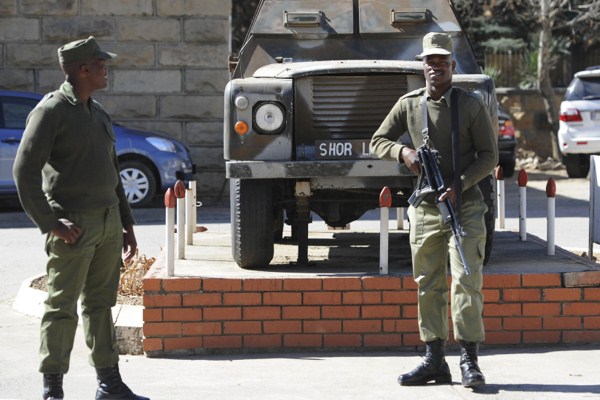South African President Jacob Zuma visited Lesotho today to try to resolve a political crisis now in its second week. On Aug. 30, Lesotho’s Prime Minister Thomas Thabane fled to South Africa—which entirely surrounds his small, mountainous country—claiming to have escaped an attempted military coup. Thabane has since returned to the capital of Maseru, where, at his request, he is under the protection of a South African civilian police force. Meanwhile, an insurgency drawn from Lesotho’s elite Special Forces Unit, led by the ousted armed forces chief Lt. Gen. Tlali Kamoli, has raided state armories and taken to the hills. It now falls on the Southern African Development Community (SADC), the regional bloc in which South Africa is the key player, to restore order to Lesotho.
What took place in Maseru was “not a conventional coup,” says James Hamill, a South Africa expert at the University of Leicester. “It has some of the classic hallmarks of a coup: the military in the streets, disarming the police, surrounding the prime minister’s residence, the prime minister fleeing,” Hamill adds. “However, the military did not formally take charge; it did not begin making announcements on national television or radio; and they formally denied a coup had taken place. So my take is that this was a kind of crypto-coup designed to force a particular political outcome.”
Dimpho Motsamai, an analyst at the Institute for Security Studies in Pretoria, agrees. “This is about creating a conducive environment to undermine Thabane at all costs,” she says, “knowing SADC is not interested in a military intervention.” Motsamai draws a distinction between two overlapping crises: a long-running political struggle between Thabane and Deputy Prime Minister Mothetjoa Metsing and a security crisis triggered by Thabane’s recent sacking of Kamoli over alleged corruption. Metsing has pointedly refused to condemn Kamoli’s insurgency, which is widely perceived as taking place on Metsing’s behalf. Thabane, for his part, on Monday refused to reopen Parliament, jeopardizing a SADC-brokered peace deal in order to avoid having his government disbanded.

